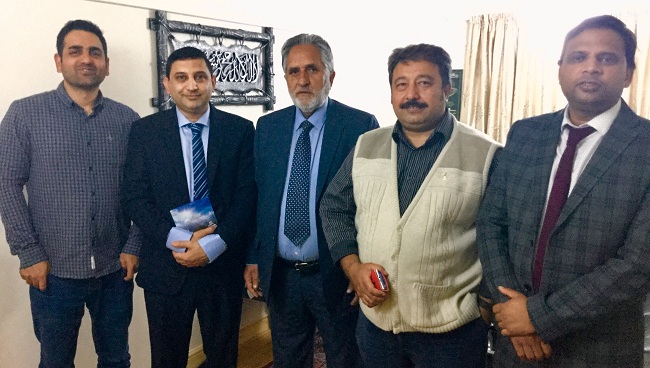Statistical Data Relating to Deportation/Immigration Detention/Asylum Q3 2018

1) Enforced Returns (Deportations)
The total number of enforced returns from the UK decreased by 18% to 10,190 in the year ending September 2018, compared with 12,380 in the previous year. The fall coincides with changes across the immigration system following Windrush and was driven by falls in:
Enforced returns of people who were in detention prior to their return, which fell by 15% to 8,996, compared with 10,577 in the previous year.
Enforced returns for both EU nationals (down 1,197 to 3,957) and non-EU nationals (down 993 to 6,233); EU nationals accounted for 39% of enforced returns throughout the year and the majority (56%) of these were Romanian and Polish nationals, despite falls compared with the previous year.
Of the enforced returns in the latest period, 24% (2,493) were enforced returns of people who had previously sought asylum.
Voluntary returns for the same period were 15,417.
A further 18,213, were refused entry at port and left of their own volition.
Top Destination Countries for Forced Returns Q3 July/August/September 2018
Albania 1,687
Romania 1,320
Poland 908
Lithuania 543
Pakistan 542
Charter Flights (Escorts and Removals) Q3 July/August/September 2018
1. Number of males removed
2. Number of females removed
3. Number of escorts
4. Number of flights in total
5. Number flights to each country / number removed to each country
6. Number of children, if any
1. Number of males removed in July, August and September 2018. – 378.
2. Number of females removed in July, August and September 2018. – 16.
3. Number of escorts in July, August and September 2018. – 904.
- Number of flights in total in July, August and September 2018. – 11.
- Number flights/ number removed to each country / Q3 July/August/September 2018.
Albania 5 flights 268 Returnees
France/Switzerland 2 flights 28 Returnees
Ghana/Nigeria 2 flights 49 Returnees
Pakistan 2 flights 49 Returnees
- No children were returned.
2) Immigration Detention
At the end of September 2018, there were 2,049 people held in the detention estate, a fall of 41% compared with the same date 12 months earlier to the lowest level since comparable records began in 2009. The fall coincides with the introduction of the new Immigration Bail in Schedule 10 of the Immigration Bill 2016 (15 January 2018), and changes across the immigration system following Windrush.
In the year ending September 2018, 25,061 individuals entered the detention estate, down 9% compared with the previous year, to the lowest level since comparable record began in 2009.
Over the same period, 26,440 left the detention estate (down 5%). Two-thirds of these were detained for less than 29 days, and 4% were detained for more than 6 months. The Home Office would usually only detain someone for more than 6 months if they are a foreign national offender (FNO) or if they claim asylum while in detention.
Of those leaving detention, 44% were returned from the UK to another country (compared with 48% in the previous year) and a further 38% received Secretary of State (SoS) bail.
For the first time, this release includes data on the number of deaths in detention and absconds from the detention estate. These data will be reported on an annual basis.
In 2017, 4 people died in the detention estate while being held solely under immigration powers. This does not include those who died while being detained solely under immigration powers in prison, or after leaving detention.
In 2017, 3 people absconded while being detained solely under immigration powers in detention. This does not include those who absconded from prisons.
3) Support Provided to Asylum Seekers
As at the end of September 2018, 43,383 asylum seekers in the UK were in receipt of support under Section 95 of the Immigration and Asylum Act 1999, up 10% from the previous year.
Of these, 40,481 (93%) were in receipt of both accommodation and subsistence, and 2,902 (7%) in receipt of subsistence only. The majority (82%) were located in England, with smaller supported populations in Scotland (9%), Wales (6%) and Northern Ireland (2%).
A further 4,064 individuals were in receipt of support under Section 4 of the Immigration and Asylum Act 1999, up 4% from the previous year.
4) Grants of Asylum Year Ending September 2018
There were 27,966 asylum applications in the UK from main applicants in the year ending 2018, 4% higher than the previous year. However, this remains lower than levels seen in 2015 and 2016 during the European migration crisis. Over the same period, applications to the EU fell by 16%.
In the year ending September 2018, the UK issued 15,170 grants of asylum, alternative forms of protection and resettlement (42%, or 6,394, of which were children). This was a fall of 3% compared with the previous year. This comprised:
6,904 grants of asylum (down 1,250, or 15%), driven predominantly by falls in grants to Eritrean (down 988), Iranian (down 560) and Sudanese (down 458) nationals
2,272 grants of an alternative form of protection (more than doubled), driven predominantly by an increase in grants of humanitarian protection to Libyan nationals (up 742)
5,994 people provided protection under resettlement schemes (down 6%)
The Vulnerable Person Resettlement Scheme (VPRS) accounted for three-quarters (4,567) of those resettled in the UK in the year ending September 2018. Since it began in 2014, 13,961 people have now been resettled under the scheme. A further 663 were resettled under the Vulnerable Children Resettlement Scheme (VCRS) over the last year.
Additionally, 6,007 Family reunion visas were issued to partners and children of those granted asylum or humanitarian protection in the UK (up 18%).
5) Extension of Temporary Stay in the UK
There were 268,004 decisions on applications for extension of temporary stay (including dependants) in the year ending September 2018, 22% more than in the previous year. This was primarily due to increases in those granted extensions for family reasons, which likely reflect the change to the family Immigration Rules requiring individuals to obtain extensions every 2.5 years.
Of these, 242,698 were grants of extensions of temporary stay, 21% more than the previous year, representing a grant rate of 91%.
6) Settlement
There were 91,209 decisions on applications for settlement in the UK in the year ending September 2018, 41% more than in the previous year. Of these decisions, 95% resulted in a grant and the number granted settlement was 42% more than in the previous year.
7) EEA Nationals and Their Family Members
In the year ending September 2018, there were 86,384 registration certificates and registration cards issued, 29% less than the previous year. This fall followed the sharp increases seen in the period immediately following the referendum on membership of the EU in June 2016. There was a 46% reduction in registration certificates issued to EU nationals (down 38,085 to 44,403) and a smaller 6% fall in registration documents issued to non-EU nationals (down 2,389 to 41,981).
There were 102,012 documents certifying permanent residence and permanent residence cards issued in the year ending September 2018, 39% less than the previous year.
Following the EU referendum, the number of documents issued to EU nationals increased significantly to a peak of 168,413 in the year ending December 2017. The fall in the most recent period continues a downward trend, but still remains higher than levels seen before the EU referendum.
8) Citizenship
There were 148,737 applications for British citizenship in the year ending September 2018, 8% more than in the previous year.
In the year ending September 2018, applications for citizenship made by EU nationals increased by 32% to 43,545. EU nationals now account for 29% of all citizenship applications, compared with 11% in the year ending September 2016.
Applications made by non-EU nationals were broadly stable in the most recent year at 105,192, following falls in the previous 2 years.
**************************************
Immigration statistics quarterly release
https://is.gd/m2X9Bc
Immigration Rules: statement of changes
https://is.gd/9kCU5m
Statistics: release calendar
https://is.gd/6JvS1x
A Secret Punishment – The Misuse of Segregation in Immigration Detention”
https://is.gd/J7F5mS
Unauthorised Segregation in Immigration Detention found to breach Article 8 ECHR (2 August 2017)
https://is.gd/TMSTN4
Segregation Being Misused in Immigration Removal Centres Across The UK
https://is.gd/acRysa
1) Enforced Returns (Deportations)
The total number of enforced returns from the UK decreased by 18% to 10,190 in the year ending September 2018, compared with 12,380 in the previous year. The fall coincides with changes across the immigration system following Windrush and was driven by falls in:
Enforced returns of people who were in detention prior to their return, which fell by 15% to 8,996, compared with 10,577 in the previous year.
Enforced returns for both EU nationals (down 1,197 to 3,957) and non-EU nationals (down 993 to 6,233); EU nationals accounted for 39% of enforced returns throughout the year and the majority (56%) of these were Romanian and Polish nationals, despite falls compared with the previous year.
Of the enforced returns in the latest period, 24% (2,493) were enforced returns of people who had previously sought asylum.
Voluntary returns for the same period were 15,417.
A further 18,213, were refused entry at port and left of their own volition.
Top Destination Countries for Forced Returns Q3 July/August/September 2018
Albania 1,687
Romania 1,320
Poland 908
Lithuania 543
Pakistan 542
Charter Flights (Escorts and Removals) Q3 July/August/September 2018
1. Number of males removed
2. Number of females removed
3. Number of escorts
4. Number of flights in total
5. Number flights to each country / number removed to each country
6. Number of children, if any
1. Number of males removed in July, August and September 2018. – 378.
2. Number of females removed in July, August and September 2018. – 16.
3. Number of escorts in July, August and September 2018. – 904.
- Number of flights in total in July, August and September 2018. – 11.
- Number flights/ number removed to each country / Q3 July/August/September 2018.
Albania 5 flights 268 Returnees
France/Switzerland 2 flights 28 Returnees
Ghana/Nigeria 2 flights 49 Returnees
Pakistan 2 flights 49 Returnees
- No children were returned.
2) Immigration Detention
At the end of September 2018, there were 2,049 people held in the detention estate, a fall of 41% compared with the same date 12 months earlier to the lowest level since comparable records began in 2009. The fall coincides with the introduction of the new Immigration Bail in Schedule 10 of the Immigration Bill 2016 (15 January 2018), and changes across the immigration system following Windrush.
In the year ending September 2018, 25,061 individuals entered the detention estate, down 9% compared with the previous year, to the lowest level since comparable record began in 2009.
ver the same period, 26,440 left the detention estate (down 5%). Two-thirds of these were detained for less than 29 days, and 4% were detained for more than 6 months. The Home Office would usually only detain someone for more than 6 months if they are a foreign national offender (FNO) or if they claim asylum while in detention.
Of those leaving detention, 44% were returned from the UK to another country (compared with 48% in the previous year) and a further 38% received Secretary of State (SoS) bail.
For the first time, this release includes data on the number of deaths in detention and absconds from the detention estate. These data will be reported on an annual basis.
In 2017, 4 people died in the detention estate while being held solely under immigration powers. This does not include those who died while being detained solely under immigration powers in prison, or after leaving detention.
In 2017, 3 people absconded while being detained solely under immigration powers in detention. This does not include those who absconded from prisons.
3) Support Provided to Asylum Seekers
As at the end of September 2018, 43,383 asylum seekers in the UK were in receipt of support under Section 95 of the Immigration and Asylum Act 1999, up 10% from the previous year.
Of these, 40,481 (93%) were in receipt of both accommodation and subsistence, and 2,902 (7%) in receipt of subsistence only. The majority (82%) were located in England, with smaller supported populations in Scotland (9%), Wales (6%) and Northern Ireland (2%).
A further 4,064 individuals were in receipt of support under Section 4 of the Immigration and Asylum Act 1999, up 4% from the previous year.
4) Grants of Asylum Year Ending September 2018
There were 27,966 asylum applications in the UK from main applicants in the year ending 2018, 4% higher than the previous year. However, this remains lower than levels seen in 2015 and 2016 during the European migration crisis. Over the same period, applications to the EU fell by 16%.
In the year ending September 2018, the UK issued 15,170 grants of asylum, alternative forms of protection and resettlement (42%, or 6,394, of which were children). This was a fall of 3% compared with the previous year. This comprised:
6,904 grants of asylum (down 1,250, or 15%), driven predominantly by falls in grants to Eritrean (down 988), Iranian (down 560) and Sudanese (down 458) nationals
2,272 grants of an alternative form of protection (more than doubled), driven predominantly by an increase in grants of humanitarian protection to Libyan nationals (up 742)
5,994 people provided protection under resettlement schemes (down 6%)
The Vulnerable Person Resettlement Scheme (VPRS) accounted for three-quarters (4,567) of those resettled in the UK in the year ending September 2018. Since it began in 2014, 13,961 people have now been resettled under the scheme. A further 663 were resettled under the Vulnerable Children Resettlement Scheme (VCRS) over the last year.
Additionally, 6,007 Family reunion visas were issued to partners and children of those granted asylum or humanitarian protection in the UK (up 18%).
5) Extension of Temporary Stay in the UK
There were 268,004 decisions on applications for extension of temporary stay (including dependants) in the year ending September 2018, 22% more than in the previous year. This was primarily due to increases in those granted extensions for family reasons, which likely reflect the change to the family Immigration Rules requiring individuals to obtain extensions every 2.5 years.
Of these, 242,698 were grants of extensions of temporary stay, 21% more than the previous year, representing a grant rate of 91%.
6) Settlement
There were 91,209 decisions on applications for settlement in the UK in the year ending September 2018, 41% more than in the previous year. Of these decisions, 95% resulted in a grant and the number granted settlement was 42% more than in the previous year.
7) EEA Nationals and Their Family Members
In the year ending September 2018, there were 86,384 registration certificates and registration cards issued, 29% less than the previous year. This fall followed the sharp increases seen in the period immediately following the referendum on membership of the EU in June 2016. There was a 46% reduction in registration certificates issued to EU nationals (down 38,085 to 44,403) and a smaller 6% fall in registration documents issued to non-EU nationals (down 2,389 to 41,981).
There were 102,012 documents certifying permanent residence and permanent residence cards issued in the year ending September 2018, 39% less than the previous year.
Following the EU referendum, the number of documents issued to EU nationals increased significantly to a peak of 168,413 in the year ending December 2017. The fall in the most recent period continues a downward trend, but still remains higher than levels seen before the EU referendum.
8) Citizenship
There were 148,737 applications for British citizenship in the year ending September 2018, 8% more than in the previous year.
In the year ending September 2018, applications for citizenship made by EU nationals increased by 32% to 43,545. EU nationals now account for 29% of all citizenship applications, compared with 11% in the year ending September 2016.
Applications made by non-EU nationals were broadly stable in the most recent year at 105,192, following falls in the previous 2 years.
**************************************
Immigration statistics quarterly release
https://is.gd/m2X9Bc
Immigration Rules: statement of changes
https://is.gd/9kCU5m
Statistics: release calendar
https://is.gd/6JvS1x
A Secret Punishment – The Misuse of Segregation in Immigration Detention”
https://is.gd/J7F5mS
Unauthorised Segregation in Immigration Detention found to breach Article 8 ECHR (2 August 2017)
https://is.gd/TMSTN4
Segregation Being Misused in Immigration Removal Centres Across The UK
https://is.gd/acRysa





